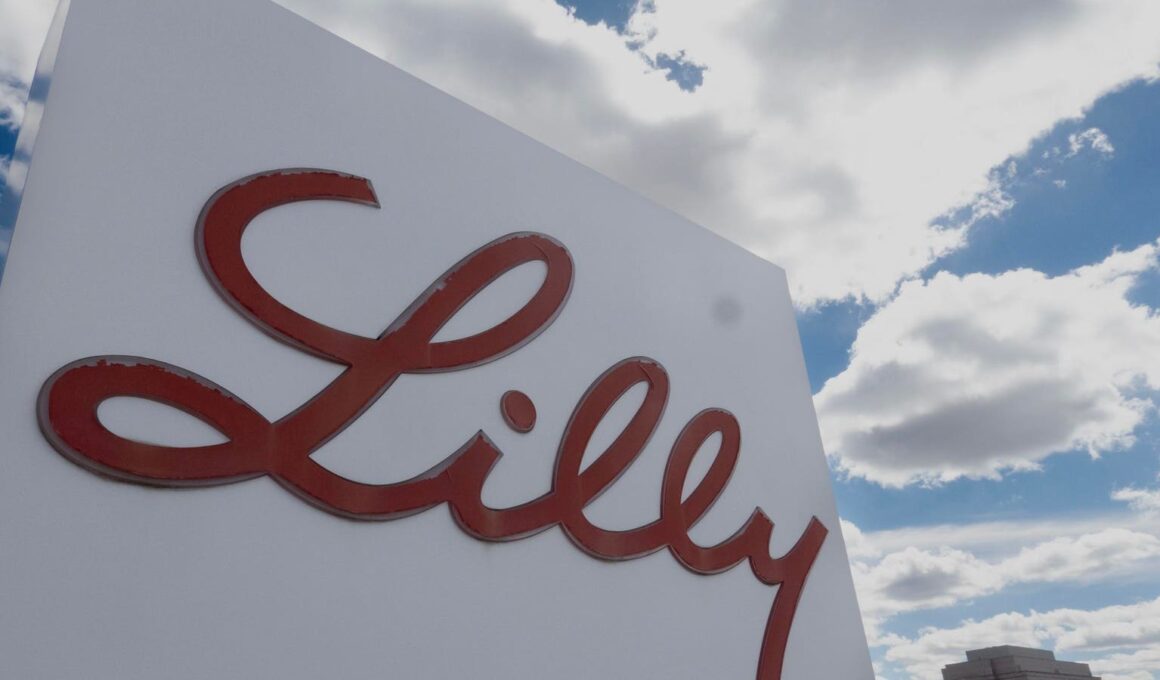Topline
Pharma titan Eli Lilly on Thursday reported strong demand for its weight loss and diabetes drugs Zepbound and Mounjaro, smashing analysts’ expectations in the face of growing competition in the lucrative weight loss drug market as it struggles to boost supplies and tackle shortages.
Eli Lilly has struggled to keep up with demand for its weight loss and diabetes drug tirzepatide.
Key Facts
Eli Lilly reported $11.3 billion in revenue and $2.97 billion in net profit for the second quarter of 2024.
Its performance surpassed consensus analyst estimates of $9.97 billion and $2.48 billion, respectively, according to FactSet.
Lilly reported $3.28 earnings per share, besting expectations of $2.74, and raised the range of its annual forecast $2.05 to earnings per share between $15.10 to $15.60.
The figure marks a 36% increase in revenue and 68% increase in profit from the same time period last year, when Lilly reported $8.31 billion in sales and $1.76 billion in profit.
Quarterly sales of Lilly’s popular weight loss drug Zepbound, which was not available during the second quarter of last year, exceeded $1 billion for the first time—Lilly took in $1.24 billion for the drug during the second quarter—and sales of diabetes injection Mounjaro came in at $3.09 billion, up from $980 million from the second quarter of last year.
Lilly shares jumped 10% during premarket trading after the report dropped.
Key Background
Analysts estimate the weight loss drug market could grow as large as $130 billion by the end of the decade. At present, Danish giant Novo Nordisk and Lilly enjoy a practical duopoly and both companies have grown to become some of the most valuable in the world riding the wave, though Novo sank on its most recent earnings as it cut its profit outlook for the year amid growing pressure to ease supply constraints. Experts told Forbes they are well positioned to defend themselves against rivals racing to stake claims of their own. Novo and Lilly haven’t come close to meeting soaring demand for the drugs and they have been reliably in short supply for almost as long as they’ve been on the market, opening up space rivals including giants like Roche, Pfizer and Amgen and upstarts like Zealand Pharma and Viking Therapeutics hope to fill. Weight loss pills, for which Novo and Lilly also have an edge, are likely to be another frontier opening, offering a new and more convenient way of delivering the medicines that are currently only available by injection.
What To Watch For
While Lilly has secured around 40% of the weight loss market with Zepbound, it is already laying the groundwork to ensure its dominance in the sector for years to come. It has two promising drugs in late stage clinical trials it hopes will give it an edge: an oral weight loss pill, orfoglipron, and a hormone mimicking injection, retatrutide. Results for the weight loss pill are expected next year and results for the obesity injection some time in 2026. Lilly has four other experimental drugs in early- or mid-stage trials.
Tangent
In addition to developing new drugs and new methods of delivery, discovering new ways of deploying existing drugs is an active area of research and one that is likely to influence the future of the weight loss drug market. Tirzepatide and semaglutide belong to a class of drugs called GLP-1 agonists, which help regulate blood sugar and appetite. They were initially approved for treating diabetes but their indications were later expanded to cover weight loss and, for Novo, cardiovascular problems. Growing research indicates they can be used to help treat many other conditions as well, including addiction, Parkinson’s and kidney disease. Lilly is actively pursuing adding treating sleep apnea to Zepbound’s label after promising clinical trials and if approved it would become the first pharmaceutical treatment to tackle the underlying cause of the condition.
Get Forbes Breaking News Text Alerts: We’re launching text message alerts so you’ll always know the biggest stories shaping the day’s headlines. Text “Alerts” to (201) 335-0739 or sign up here.
Further Reading









